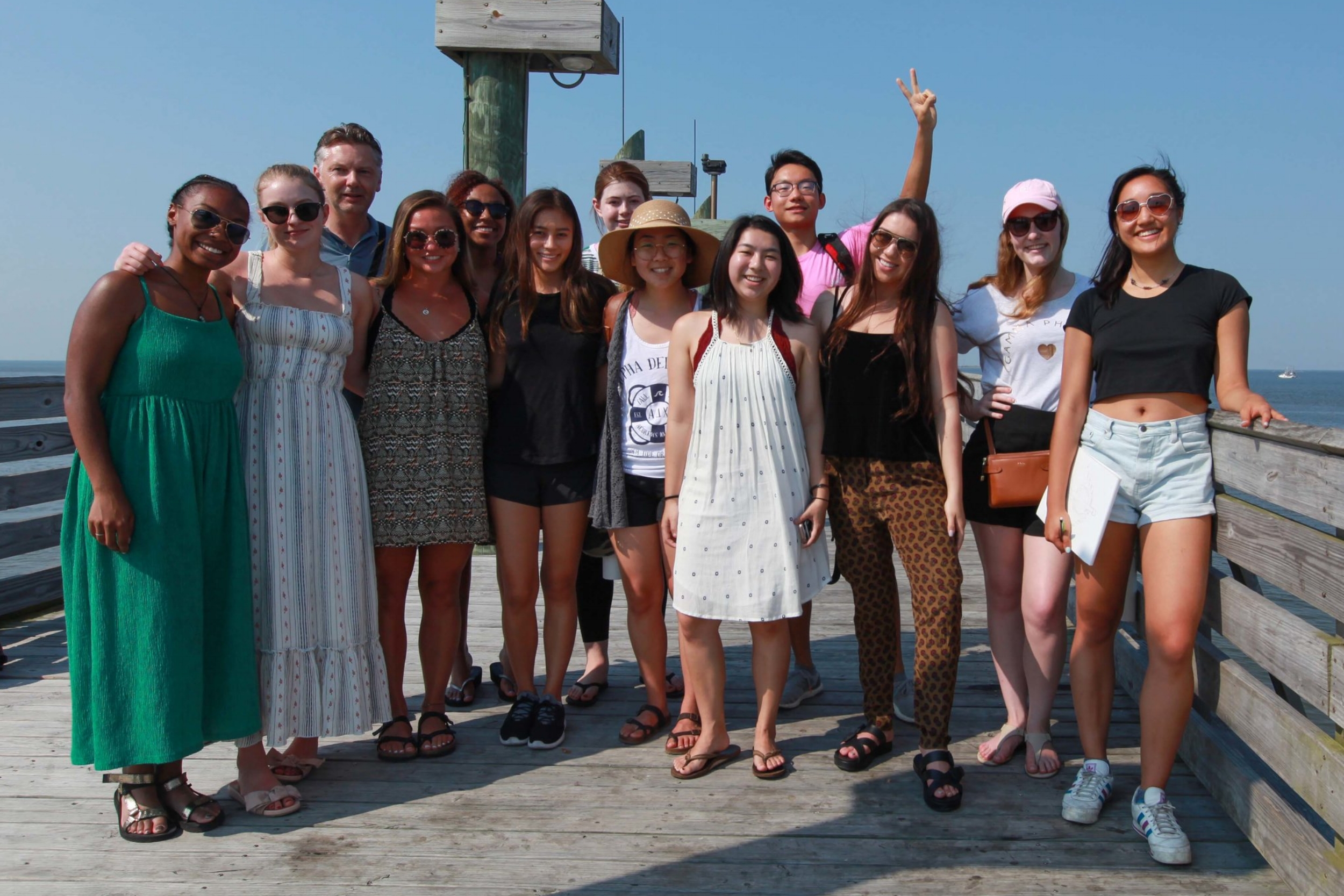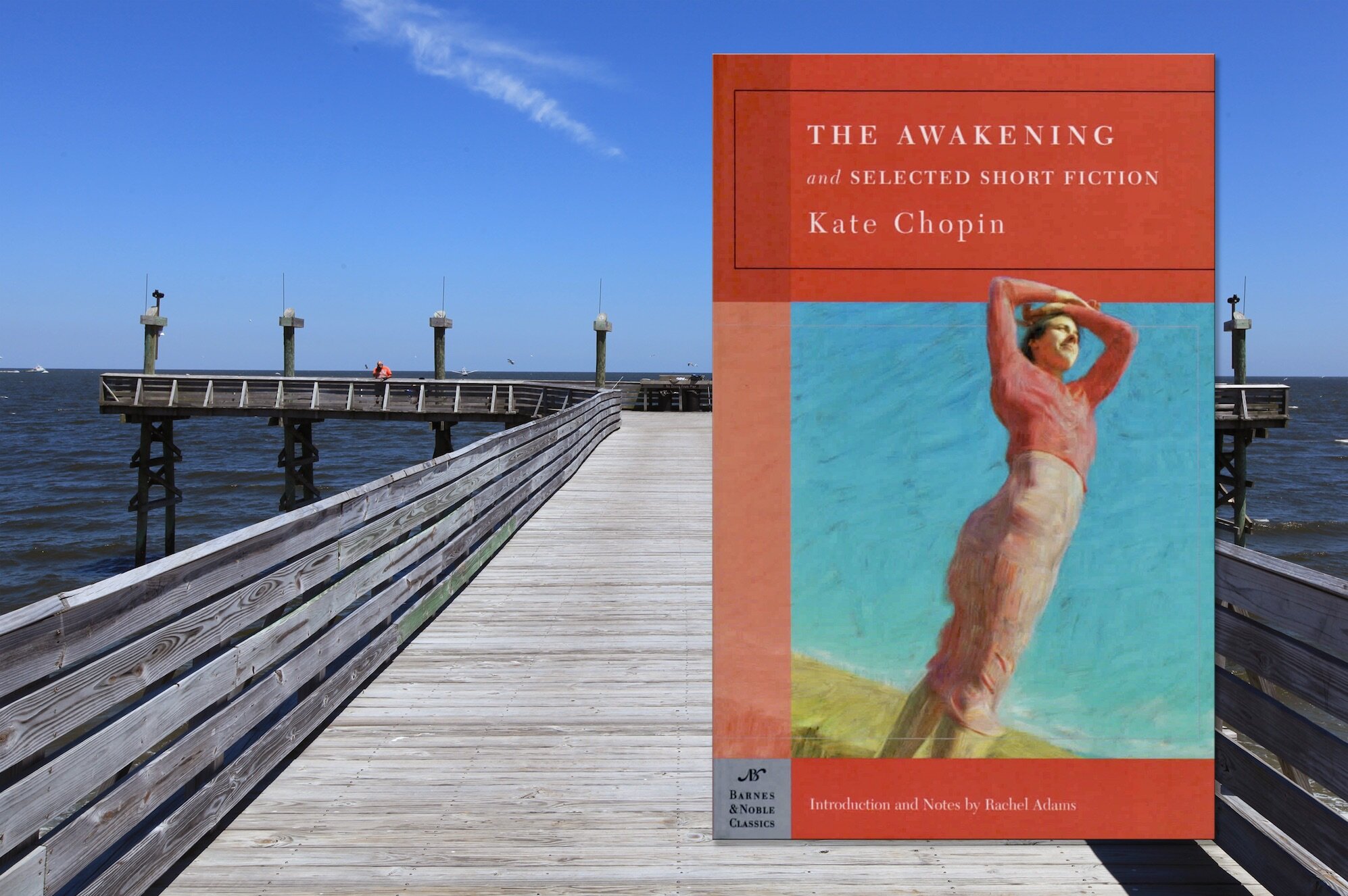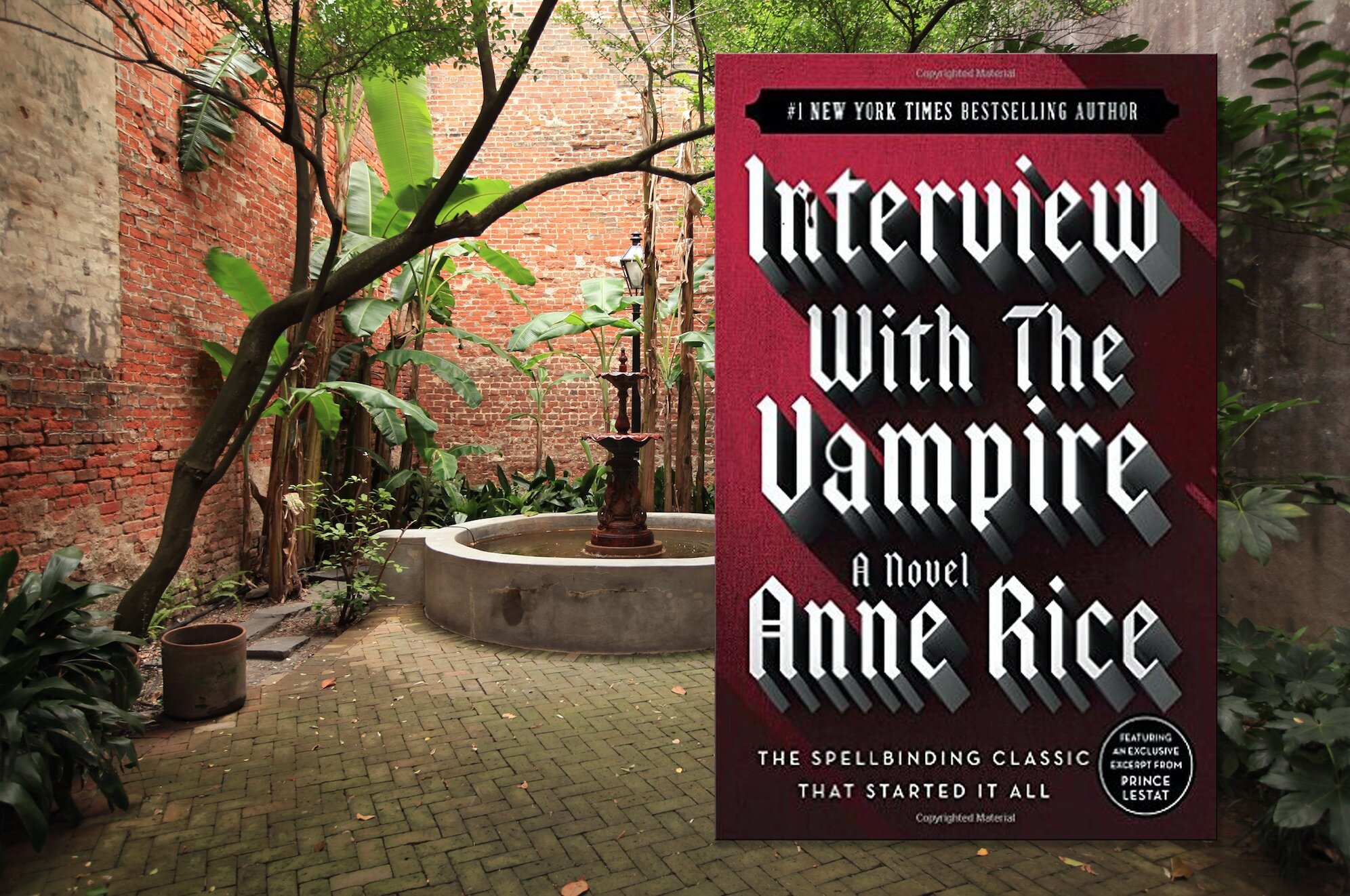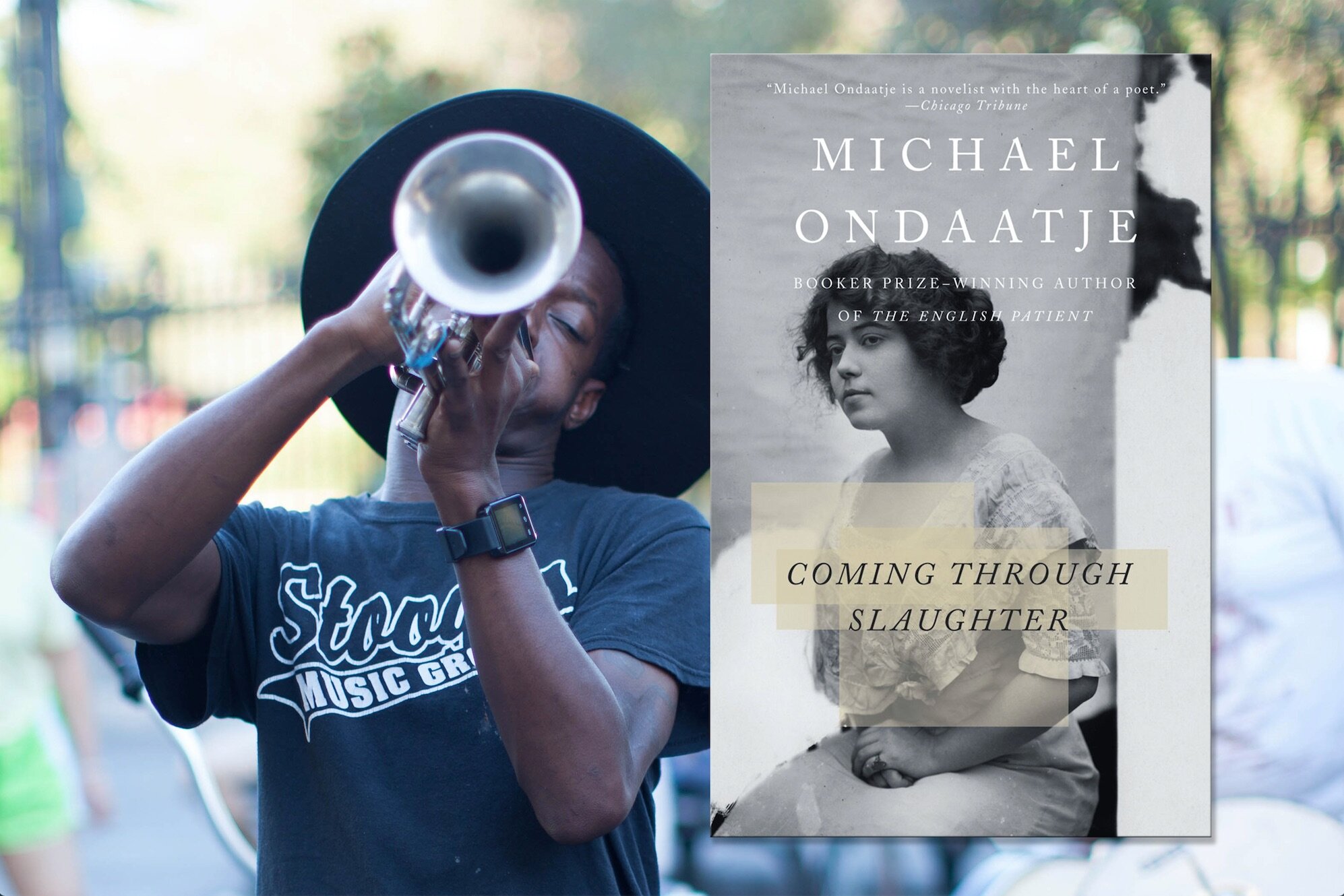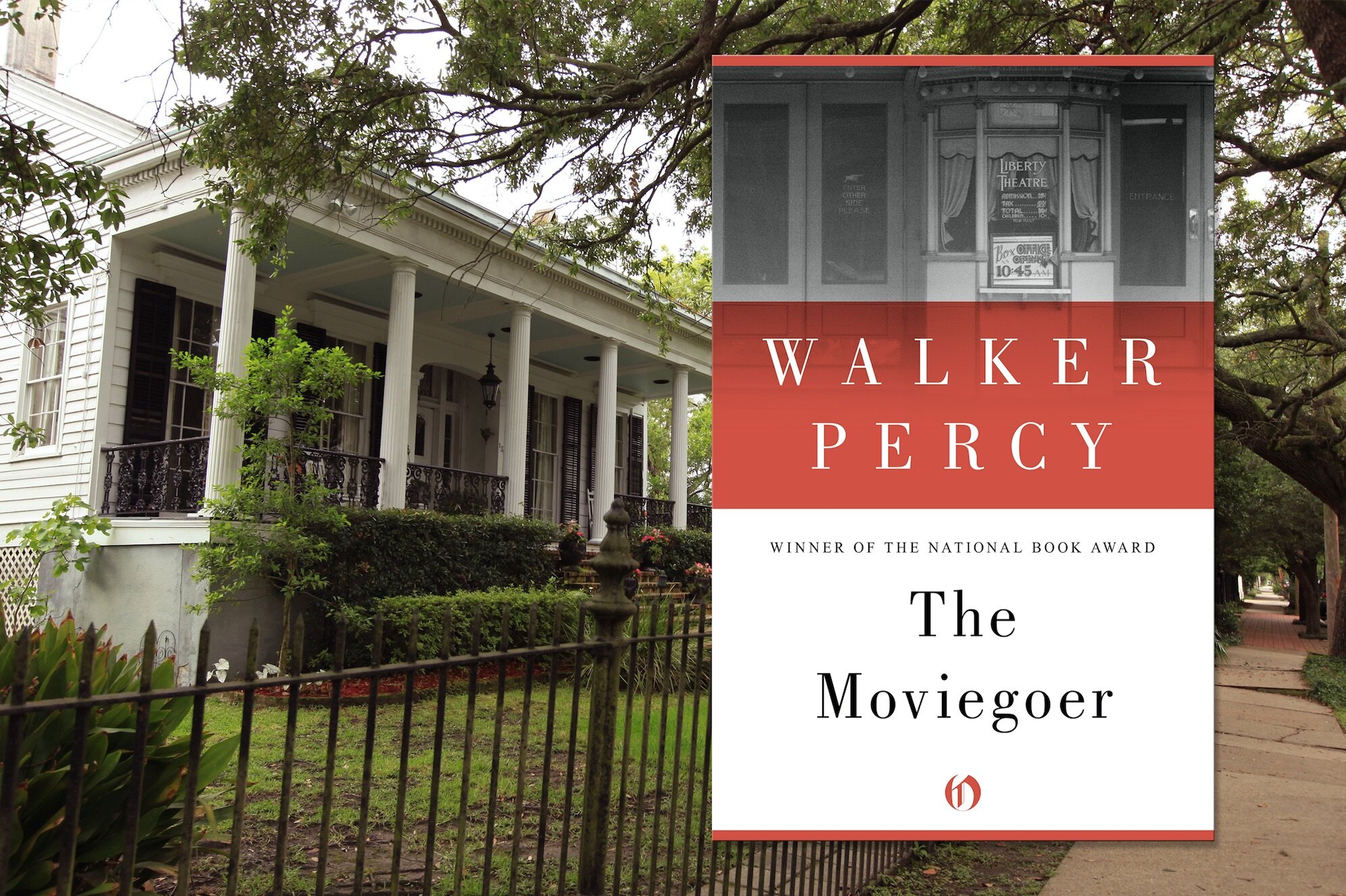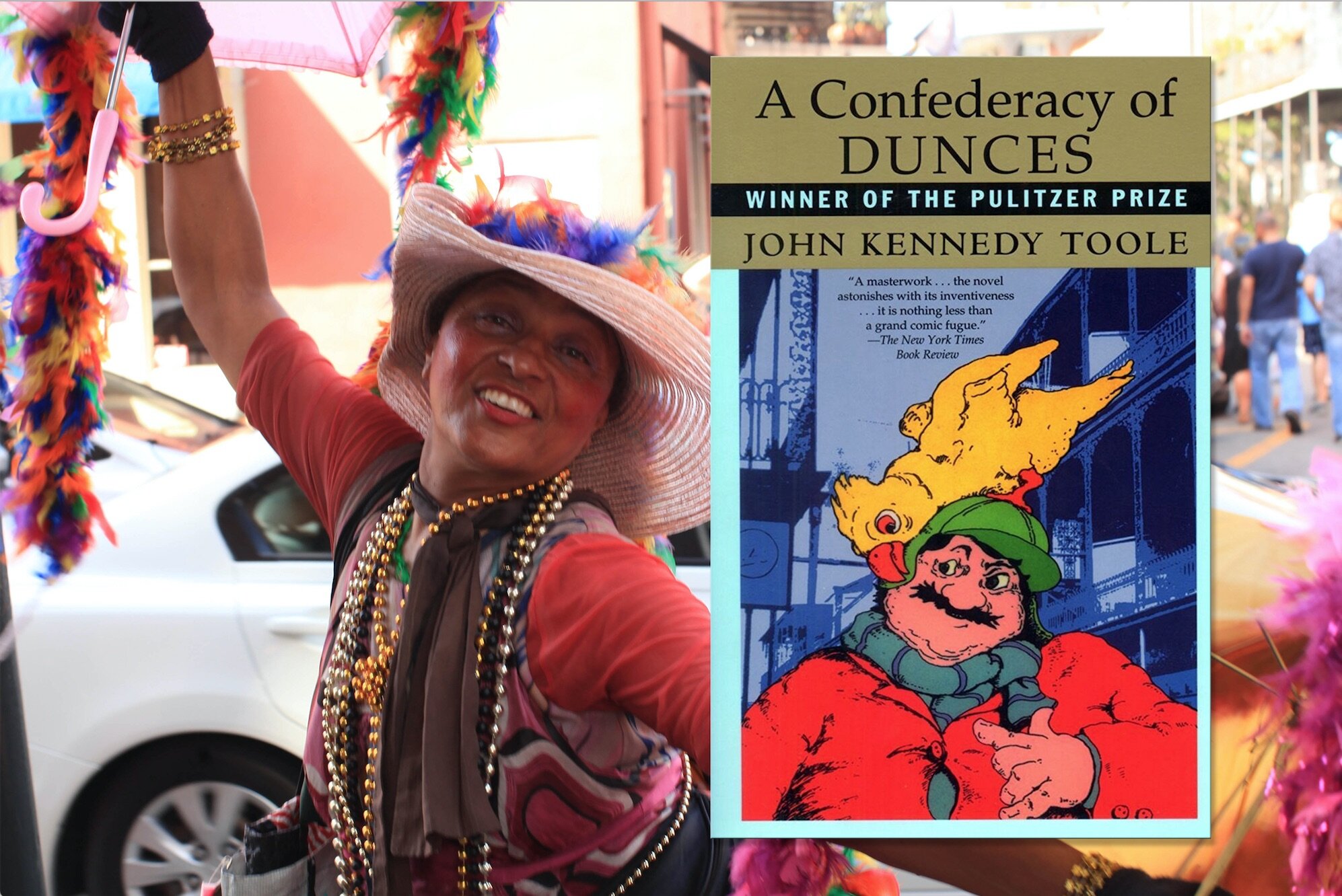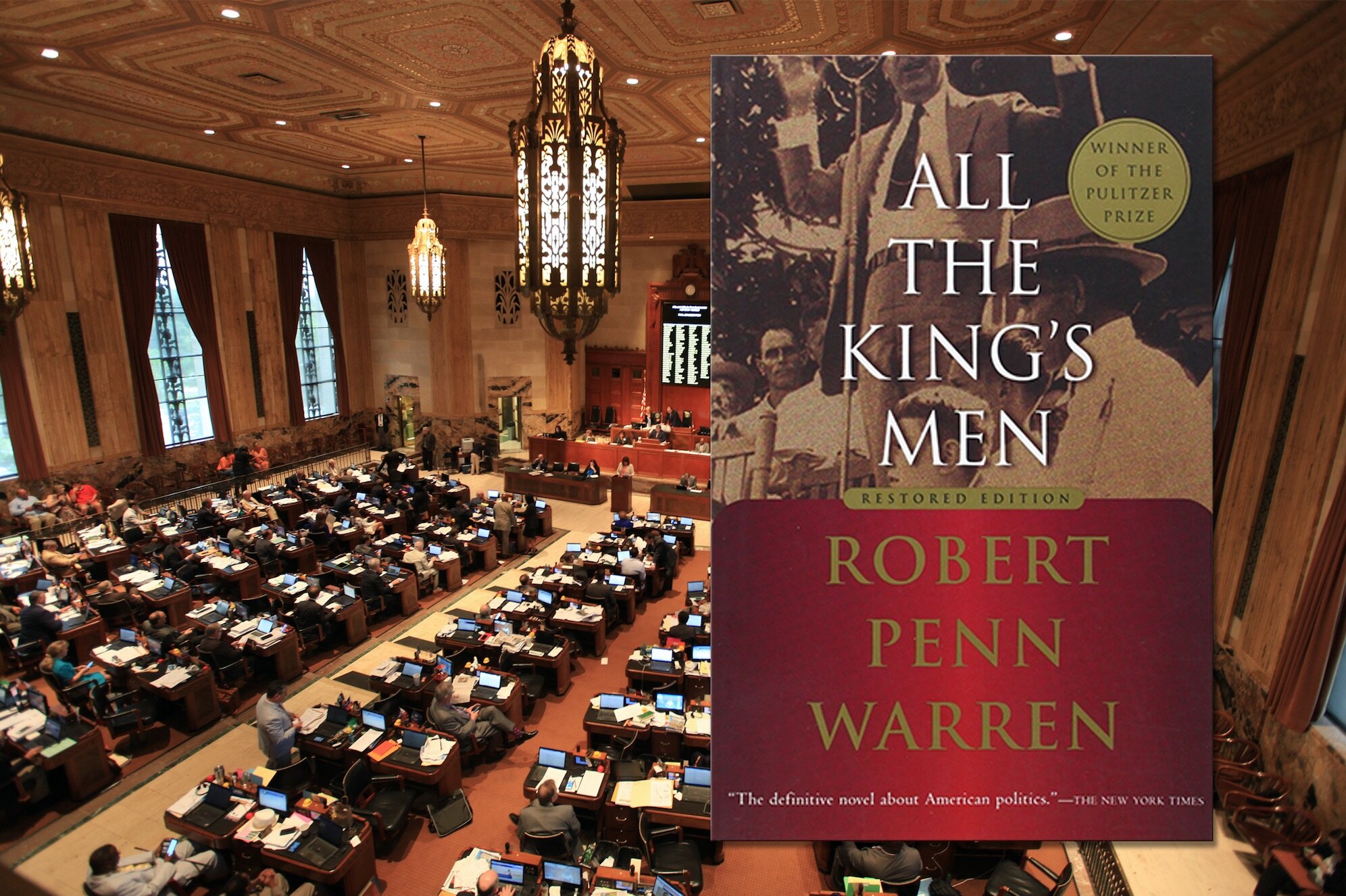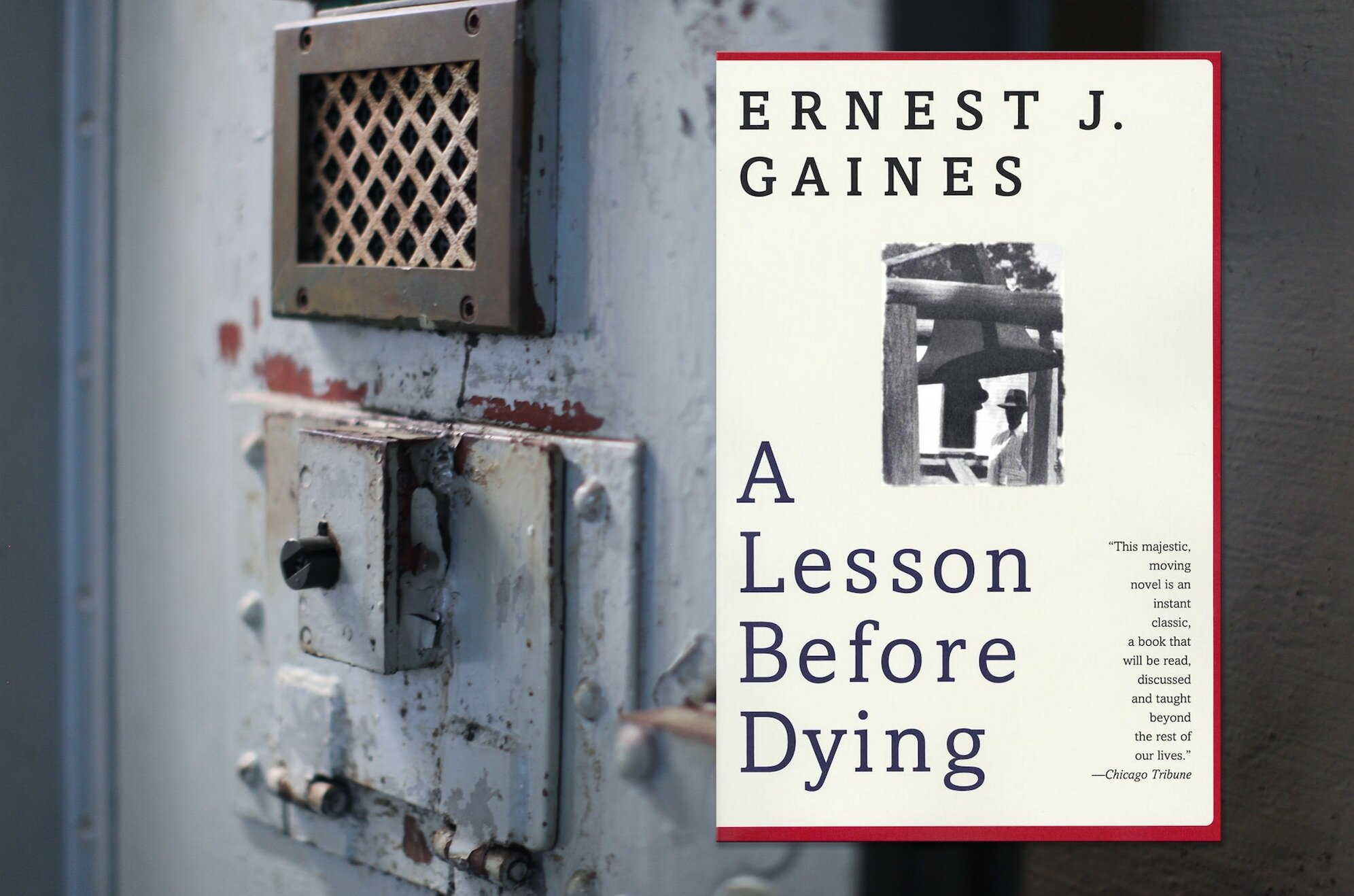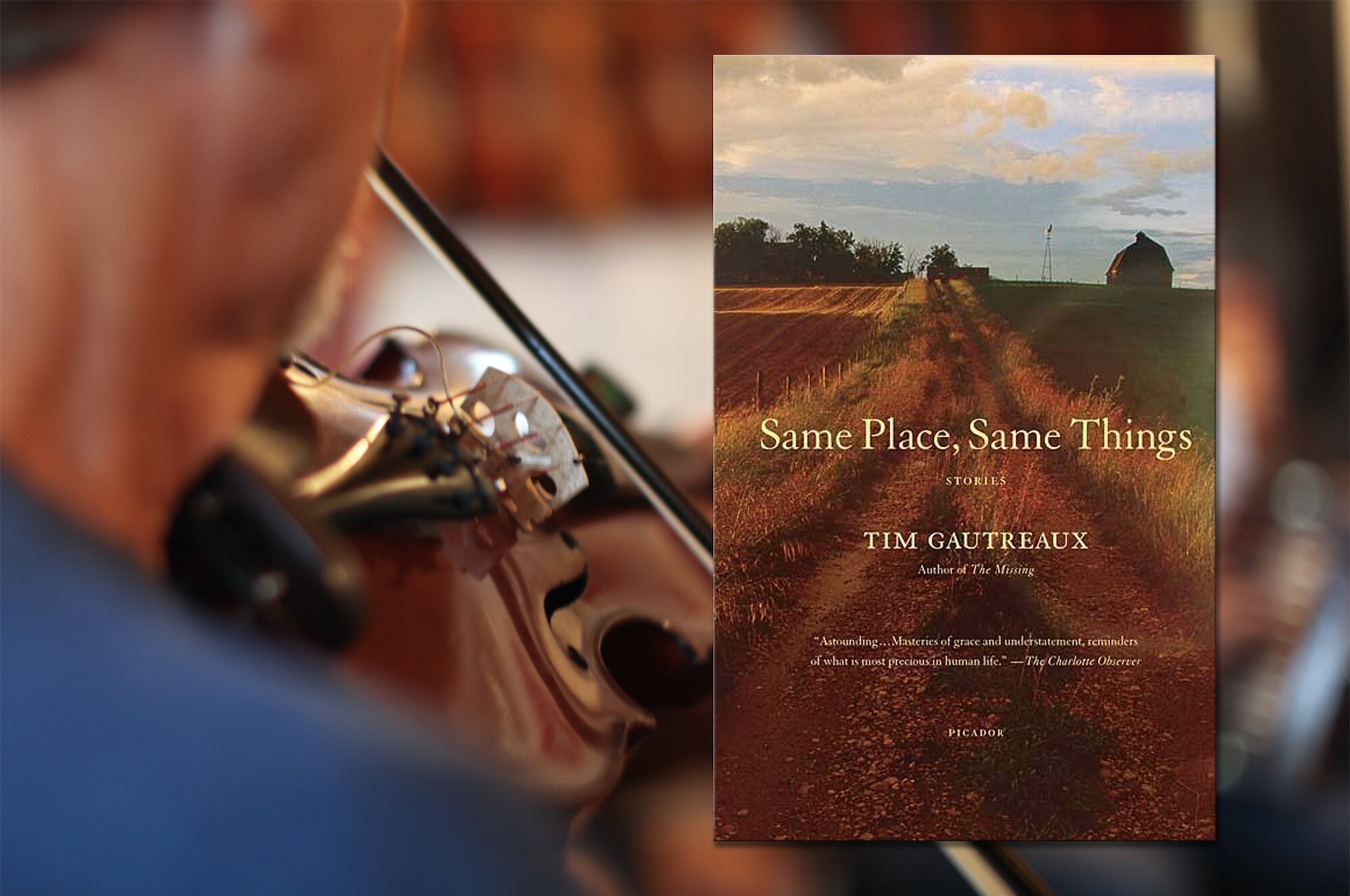In May 2018, BOOKPACKERS returned to Louisiana with a group of twelve students from the University of Southern California, for our second annual USC ‘Maymester’.
‘Maymesters’ are location-based ‘for credit’ courses offered by the University of Southern California in the first month of the summer vacation. They provide immersive experiences in which students can dig deep into new ways of thinking and being, freed from the distractions of campus life. 'BOOKPACKING THE BIG EASY' offers the perfect such immersive experience - cultural exploration through travel and fiction, the ideal 'Maymester' cocktail.
The 2018 New Orleans trip was vibrant and life-affirming. 12 student bookpackers and I spent the best part of four weeks traveling together, sharing rich experiences and forging close friendships. Together, we dug deep into a fascinating mix of local cultures - Creole, Cajun, African-American and White Protestant. We met warm and delightful people, and forged the kinds of empathetic connections - through literature, and in the flesh - which lie at the heart of the BOOKPACKERS experience.
The novels we read as we traveled - eight in all - served as guidebooks, inviting cultural and historical investigation. Each reflected and contextualized a different facet of the region. Read sequentially, they provoked ongoing and ever-deepening conversations, as ideas raised in one novel found echoes in another, the different authors wrestling with common themes of self discovery and love and meaning.
The novels invited us to embrace what is, at root, a more Francophile way of thinking - more relaxed and mellow than the busy, aspirational culture of Anglo-America, more celebrational, more reflective, more transcendent. New Orleans can be dark and melancholic sometimes, but it’s vital and in the ‘now’; and the bayou regions beyond - so often mocked and belittled in our contemporary culture - invite the traveler to find new yardsticks with which to judge success: not jobs or grades or achievement, but simpler, more earthy and eternal pleasures - food and music and friendship. Present joys.
The students wrote blogs, describing their experiences, and the blogs became a deep and very personal conduit for some extraordinary moments of revelation and transformation. Eric, a Math student from China, described himself at the start of the course as entirely unromantic (“a pure materialist and rationalist”) - but as the journey progressed, for the first time in his life, he found himself exploring not his thoughts, but his feelings (“which totally blew me away”). Ryan came on the trip hoping to re-connect with her Southern African American roots, and “I learned so much about myself, my own culture and the experiences of people in Louisiana in a way that a classroom never would have taught me.” For Candace, who’d seldom before left California, the journey proved a chance “to reevaluate my life’s purpose.” “Bookpacking,” she reflected in her final post, “was a wonderful way to learn about myself, what the world looked like in the past, and how I want the world to look in the future.” Christina discovered “that life is about relationships and about caring for each other, and the unique personal journeys and experiences that we all endure. This Maymester, cliche as it may sound, offered a valuable lesson on living.” Lauryn discovered how travel “can really alter a person’s mindset and help one re-evaluate their true wants, needs, and values. For me, I found myself erasing all negativities from my mind; all pressures that have been imposed onto me via the pace of the college environment were excused. I was free.”
For Melissa, the lesson was more deeply personal. Her blogs described her struggle for place (“Where does an Americanized half Korean girl from a working middle-class family, who studies biochemistry, belong?”) and they described her struggle for self-worth (“I just want to be loved”). In a moment of catharsis, exploring ‘A Lesson Before Dying’ in Pointe Coupée parish in Louisiana, reading about Jefferson, a young black convict (himself struggling with questions of dignity and self worth), she reached a breakthrough - “I have no reason to be ashamed of who I am”. The journey proved the start of a new way of thinking, about herself and her place in the world. “ Take this time now, to make this a new beginning…”.
Bookpacking offers more than the simple pleasure of reading books on location - although that, in itself, is a joy. It offers a chance to connect, with others and with ourselves. For my part, it was a privilege and a profound pleasure to share this kind of personal journey with such a vital, insightful and delightful group of young people.
A complete archive of the students blogs from the trip can be found here.
GRAND ISLE (May 12th to 14th)
Our journey began with three days on Grand Isle, on the Gulf Coast south of New Orleans. We stayed in a large holiday home, raised up on posts in the Caribbean style, overlooking the beach, and there - with our toes in the sand - we read Kate Chopin’s classic novella ’The Awakening’. The story describes a group of Creoles in the late 19th Century, enjoying a Grand Isle vacation, and it focuses on an American, Edna, who begins to unwind and ‘awaken’ in this relaxed and emotionally open francophile world.
Our time in Grand isle offered a chance to decompress from the intensity of USC life, and it offered the students their first experience of ‘bookpacking’ - the rare pleasure of reading in context.
“It’s exhilarating to be able to study literature outside the confines of a classroom and to step into a different world and experience a place through the novel. It offers an opportunity to be fully immersed in the physical environment and understand literature to a point that is far deeper than just words on a page.” - Christina
“Sitting there on the sand, sun overhead and salt in the air, I began to lose myself in Kate Chopin’s world. I imagined that I was feeling the exact same breeze that the children in the novel felt as they played on the beach.” - Taylor
“There was a never a moment in Grand Isle where I didn’t feel relaxed and at ease not only with the world, but with my place in it - free of anxieties, insecurities, and all previous responsibilities. This is a place where nothing happens - the real edge of nowhere. However the fact that nothing’s expected to happen is exactly what makes it beautiful. Grand Isle is waking up in the morning to the sound of the ocean, buying lunch at JoeBob’s Gas and Grill, and dodging lizards and spiders as you trek through the sand in your bare feet at night. It’s dipping your toes in the warm, murky gulf while staring at distant oil rigs on the horizon. It’s hearing the flies buzz around your ears as the heat sticks to your skin.” - Lauryn
“It’s a present place. Everything forces you to be present; the heat is strong the sounds are few so you latch onto what you can, there are no distractions to bury your thoughts. So you create meaning in the people and things around you - there’s nothing else to do.” - Sadie
“These first few days spent at Grand Isle have not only provided me with an opportunity to escape the fast paced race of L.A. and USC life, but have gifted me with a new perspective.” - Melissa
NEW ORLEANS (May 15th to 28th)
For the next two weeks we based ourselves in central New Orleans, and immersed ourselves in the heady cocktail of the city. We read three novels - ‘Interview With The Vampire’, ‘Coming Through Slaughter’ and ‘The Moviegoer’ - and we discussed ‘A Confederacy of Dunces’, which the students had read prior to departure.
Our journey of discovery through the city - exploring the different facets and ‘faubourgs’ of New Orleans - reflected and mirrored our trajectory through those four novels.
• ‘Interview With The Vampire’ was our text to help us understand the early history of the city, the evolution of the French Quarter and the Garden District. It also tapped into the supernatural elements of the city, which can only be understood through an appreciation of the cultural and ethnic composite (essentially French Catholic and African / Haitian) that forms the root of New Orleans’ foundational culture.
• ‘Coming Through Slaughter’ developed our understanding of the history of African American New Orleans, from the ‘free black’ era to the early jazz age. Geographically the novel focuses on Central City, and the district that used to be ‘Storyville’, the red light district.
• ‘The Moviegoer’ is set in the more genteel Garden District and in Gentilly, and it touches on Southern culture, an American infusion introduced into New Orleans in the mid 19th Century. ‘The Moviegoer’ touches on the continuance of Southern culture into the mid 20th century - and offers a perspective on contemporary nostalgia for a culture infused with pernicious concepts of racial and social hierarchy.
• ‘A Confederacy of Dunces’ evokes many of the more eccentric and transgressive aspects of the city, the most obvious manifestations of which are Bourbon Street, and Mardi Gras. We visited the former and explored the significance of the latter.
Outings were many and varied. We visited a host of locations, museums and graveyards in the city; we took a day trip to the Whitney Plantation (a museum of slave history); we attended a jazz performance at Preservation Hall, and a jazz parade in Central City.
Though our primary focus throughout this period was on New Orleans culture and history, we pushed on with the philosophical inquiry that had begun with ‘The Awakening’. Reading 'The Moviegoer', the students embraced the ‘search’ undertaken by Percy’s protagonist, Binx Bolling, and several of them described how Binx’ journey furthered their own process of self-examination.
“Beautiful. Decadent. Vibrant. Jubilous. Never had I seen such unfiltered joy and expression.” - Lauryn
“There is a poetry to New Orleans. It’s a rhythm. It’s odd, and it doesn’t make sense, it’s wandering and complex and it lies but gives you moments of the purest truth. It’s a lost and mischievous 17-year-old, who doesn’t know who he is or who he wants to be. It is a city with stories of murderers shuffling down the alleys and pirates crowding the bars, has a distinctive pride in its unique red light district of Storyville, and is home to a music that transcends all rules, even ones that it made for itself. The city rests on soil that asks for sickness and sinking, always on the verge of an outbreak or flood. A world with voodoo - pushing past the Catholic force or African “wildness” and allowing a humming religion of dance, spells, and pleasure. New Orleans erupts with a variety of cultures that only sizzle in other parts of the world. It is a city that aches for ecstasy.” - Sadie
“Anywhere else, I can at least pretend to be a cynic, but in New Orleans everything is beautiful. Even on Bourbon Street when every corner reeks of a frat party gone stale, there's still a rhythm and rhyme to it all that one can't help but give into. I want to take photos of everything and keep them tucked away forever; I want to jar the street scents and never release them; I want to feel everything that this city brings me all at once all the time. It may be platonic - maybe even unrequited - but it's love regardless and here, it's everywhere.” - Lauryn
“The incessant searching—on Frenchman St, on Bourbon St, in every lounge and bar in the evening—has made a festive and fun tradition of the art of finding meaningful delight. Second lines and krewe parades on the weekends are expressions of pride and sweet sugar—New Orleans has been through a lot, but it still knows how to try and be joyful by referencing the past. A daily carnival, a medieval fair, seeking the holy grail of elsewhere, somewhere in its history.” - Jenny
“There is a piece of Southern Louisiana that feels lost and damaged. There is something missing yet, the people who we met and the celebrations that we were able to take part of exemplified their ability to smile in the face of adversity. This city has a resiliency that I have not found in the other cities I have visited. It simmers just underneath the parties, food and Mardi Gras beads.” - Ryan
“Just as words couldn’t describe how joyful the jazz was, words cannot describe the disturbing history of slavery in New Orleans. During seminar, we learned about the integral role of slavery for the prosperity of New Orleans; at the Whitney Plantation, the testimonies of those who endured slavery weighed deeply on my heart.” - Candace
“I found myself pacing back and forth in Jackson Square, examining and carefully selecting Duchess out of the line-up of makeshift psychic pop-up shops luring in customers one by one with the charm of their crystal balls and tarot cards. What better way to formally introduce yourself and shake hands with the shadows of the city? Here, there is talk of voodoo and hoodoo, of magic and curses, of the holy ghosts and the evil demons that lurk. Never have I seen such a blatant and immediate embrace of the supernatural and all of its elements. While some weary visitors may scoff and call it “superstition”, here it is called and claimed as culture and in the land of the Southern Gothic, it’s best if you learn not to question it.” - Lauryn
“I don't know how I could have written about New Orleans and Louisiana without talking about the food. Because reading about the food, you realize its importance in psychology and deeper meanings. And consuming the food, whether you understand its emotional meaning or not, you absorb the mash of cultures and heart that makes the South such a special, strange place.” - Sadie
“The Moviegoer was definitely my cup of tea: literature that evokes meaningful conversations and thoughts. It was through Binx's ‘search’ that Percy challenged me to reevaluate my life’s purpose. And while ‘the search’ may sound silly, it’s really just putting a label to a longing that everyone has at some point in their personal life: to find life’s purpose and satisfaction.” - Candace
“Take a hint from Binx Bolling and venture outside of the place you're in to experience the world around you to learn more about it but also, to learn more about yourself.” - Ciannah
BATON ROUGE & POINTE COUPÉE PARISH (May 29th to 31st)
The next three days of the experience we based ourselves in Baton Rouge, Louisiana’s State Capitol, where we began by exploring ‘poor white' Southern culture through the pages of 'All the King's Men', a political thriller based on the life of 30's Louisianan demagogue Huey Long.
Then, from Baton Rouge, we visited Pointe Coupée Parish - the setting of ‘A Lesson Before Dying’.
Our exploration of this novel and the region in which it is set proved the most impactful time of the course. The novel tells the story of a young black man, falsely imprisoned and awaiting the death penalty in the era of Segregation. We visited the abandoned cells in the local court house - a key location in the novel - and we visited and interviewed the novel’s author, Ernest J. Gaines, now 84 years old, and living on the plantation where he’d picked cotton as an eight-year-old child.
The novel invites an investigation into the purpose and meaning of human life, exploring concepts of human dignity and self-worth. These themes resonated profoundly with the students. This part of the course, as several students described, truly offered ‘a lesson on living’.
“You always hear about Southern hospitality but you don’t actually expect to encounter it to such an extent and experience such warmth and kindness from strangers, especially coming for Los Angeles where everyone is just eager to connect with you on LinkedIn, instead of in real life. Nothing changes your perspective on life more than experience itself, and I can say without a doubt that visiting a small town called New Roads, changed mine forever.” - Christina
“Everyone was so gracious - such a Southern virtue. But grace is being benevolent to someone who has less power than you, who is lower than you, and it presupposes a hierarchy. That hierarchy, in which there is white, and there is not white, is the other side of the coin.” - Taylor
“Walking through the jailhouse wouldn’t have felt the same if I had not read the novel and developed a personal connection with Jefferson. It was upsetting and heartbreaking to see the conditions and details of the space: number of days and “f--- you’s” engraved on the wall, a sad and isolated outdoor area, and leftover playing cards shoved through the iron-fenced windows. It was a chilling experience.” - Candace
“Out of everything we read, Ernest J. Gaines’ novel ‘A Lesson Before Dying’ impacted me the most. Visiting the jail that Jefferson was locked up in was both profound and overwhelming—it brought the setting of the story literally to life, making Jefferson’s experience in jail tangible and real to me. […] During our morning seminar, Andrew talked about the idea of believing that we are loved and how it is easier to give love than to receive love; how it is hard to believe that we are worthy of love. By the end of the novel Jefferson finally realizes that he is worthy of being loved and accepting love. As Andrew pointed out, this feeling of not being worthy of love is not unique to people in Jefferson’s situation but is a universal condition all humans struggle with to some extent. Finishing our bookpacking experience with a novel with universal themes on love and the human condition was perfect.” - Sofia
CAJUN COUNTRY (June 1st to 3rd)
We left Baton Rouge and drove south into Cajun Country, and stayed for three nights in a rustic cabin complex on the banks of a bayou just east of Lafayette.
Throughout the course we’d been exploring how, through literature, one can develop empathy for people very different to ourselves. The next three days offered students an empathetic introduction to Cajun culture - a variant of Creole culture, rooted in 18th Century French rural traditions, fiercely localized and clannish, but rich in tradition and community.
Our text for this part of the course was Tim Gautreaux’ short story collection ‘Same Place, Same Things’, and in particular the story ‘Floyd’s Girl’, which gives a fascinating insight into the cocktail of faith, food, music and community that bind Cajuns together. We explored the Cajun parishes, we attended a Cajun dance, and - most significantly - we spent an afternoon with a group of Cajun musicians at a lunch / music jam, where we felt warmly included into a culture very different to our own.
“The Bayou is rich with Cajun culture and community that keeps their traditions alive and well; they embody 'vibrations of the soul' that make a person feel alive and a part of something bigger than themselves.” - Christina
“There was a sweet charm to this part of Louisiana. A very familial, relaxed, and welcoming feeling. We entered a little cafe called Joie de Vivre. The room was filled with lively music and happy faces drinking cafè au lait. These happy faces were mostly older people, with groups of families sitting together. Folks gladly played their instruments: the fiddle, bass, guitar, among others. A couple people were also casually dancing along and some of us bookpackers stood up to dance as well. As I was dancing and admiring the art on the wall, a woman came over to ask what we were doing in town. I explained to her and her family about ‘bookpacking’ and that we’re from the University of Southern California. Her husband’s eyes lit up, and he couldn’t believe that a bunch of young people from California cared about learning Cajun culture. He kept asking me questions and what I thought of it and all of that. It was such a joy to talk to the locals and have the opportunity to even celebrate their culture with them.” - Candace
“This past month has been one of the most eye-opening times in my life. I have learned so much and have met so many people that have honestly changed my life. Just as we were able to observe in 'Floyd's Girl,' the last short story we read on this trip, it cannot be ignored how fundamental a community is to one's own growth. I believe this last chunk of reading really solidified and comprehensively summarized what I see as the main lesson of this trip: we need each other. This is a world that requires us to lean on each other for support, to count on others and to be counted on in return. To be trustworthy, loving and compassionate. I am so grateful to have experienced all of this every single day this past month and I thank Andrew, and every one of my fellow bookpackers for that. You all have made such a big impact in my life, and I will never forget that.” - Melissa
REFLECTIONS (June 4th to 6th)
The final three days of the course were spent back in New Orleans, reflecting on the experience, finishing our blogs, and completing evaluations. It was during this time of consolidation that the students came to appreciate the holistic nature of the experience we had shared, and the power of that experience to effect change on a personal level.
Every journey should build in a time like this - a time to stop and think and consider - before rushing back to the airport for the trip home.
“It hit me a few times while in New Orleans that this trip, in its way, is a romance. A romance with myself, the world around me with its fascinating people, and storytelling.” - Sadie
“I learned so much about the world and about myself. I learned about humanity, about the value of education, about moving on from one day to the next.” - Ciannah
“Bookpacking has served as a reminder to me that the adventure matters more than the destination. These journeys are where challenges, growth, and change can happen - and these are what shape us into our fullest selves. Only by traversing the road ahead do we discover what means the most, what strength we have that pushes us through storms, and who stands by us throughout the ride.” - Claire
“There is only so much the classroom can teach before experience has to step in.” - Ryan
“While bookpacking was pitched in that first email as the interaction of literature with location, at the end of the day, it turned out to be the people we met and talked to who made the largest impact on this wonderful experience.” - Taylor
“This Maymester has been an unforgettable experience and I am so thankful to have been a part of it. I hope that in the upcoming months I can take with me the lessons that I learned on how to live an experience instead of photographing it, how to relax and let life happen and how to let experience add to the learning that happens in classrooms or in books.” - Ryan
“All this conversation, all this reading, all this reading into things—I think that’s what bookpacking is. We’re always bookpacking, always dwelling and distracting ourselves with good discussion of both fact and fiction, packing our personal stories and every learned tale with us, whether we’re visiting plantations with abominable pasts or stepping into a diner for a simple breakfast.” - Jenny
“I think this is my happy place. Reading books and drawing pictures and enjoying music are all forms of having good conversations. Through them, we’re meant to be searching for the ways we want our lives to be. Dwelling on dreams and distractions, getting swept up in their meanings, and being grateful for them every single day.” - Jenny
“This trip was a much-needed awakening. In the weeks prior to flying out to New Orleans with 11 complete strangers I was stressed out and not in the greatest of spirits. Now I feel as if I am starting to find my place in this world.” - Ciannah
“I have never seen so much of another culture in a period of time. To be guided by Andrew, by literature, and by the place itself has been such a blessing this past month. I’m thankful for all the friends I’ve made and the memories shared as well. Going home is sweet, and I can’t wait to share what I have learned with the people here (and hopefully encourage them to go on next year’s bookpacking trip!).” - Candace

